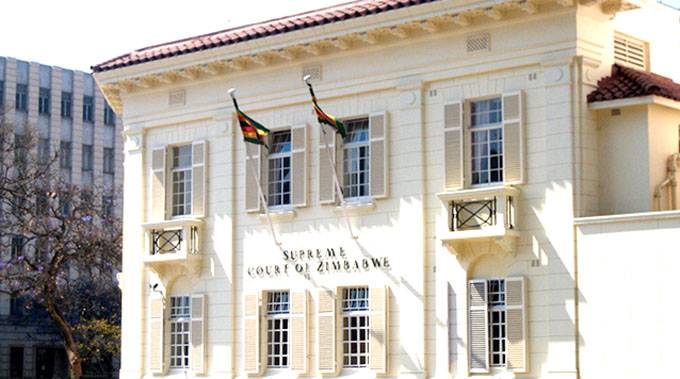Long-standing Kadoma mine dispute takes fresh turn

Herald Reporter
THE protracted mining dispute pitting two prominent Kadoma gold dealers, Kevin Magwaza and Spencer Tshuma, took a new twist yesterday after the Supreme Court struck off the roll the appeal because Tshuma had not followed proper procedure.
Tshuma was seeking to reverse a High Court ruling which nullified a Kadoma Magistrates’ Court order sanctioning the eviction of Magwaza with whom he is embroiled in a wrangle over the control of gold-rich Etna Mine.
Incensed with the court ruling, through his lawyer Mr Thoughts Deme, Tshuma rushed to the Supreme Court, without seeking leave to appeal against the decision of the lower court.
Justice Antonia Guvava, sitting with two other judges — Justices Susan Mavangira and Chinembiri Bhunu — ruled that the appeal was improperly before the court because Tshuma “jumped the gun” to approach the superior court, without seeking leave to appeal, which is the normal procedure in terms of court rules.
“The appeal be and is hereby struck off the roll,” said Justice Guvava.
The dispute between Magwaza and Tshuma imploded after Tshuma obtained an ex-parte order from the magistrates’ court seeking to evict Magwaza from the mining site.
An ex-parte refers to motions for orders that can be granted without waiting for a response from the other party.
After being served with the ex-parte order, Magwaza, through his lawyer Mr Method Ndlovu rushed to the High Court and successfully contested the legality of the order, before Justice Webster Chinamora in December last year and stopped the eviction.
This was after the court discovered that Kadoma resident magistrate Mr Shane Kubonera acted beyond his legal power, in view of limited jurisdiction of the magistrate court, in such orders.
The lower court noted that the rights, which Magwaza wanted to protect were not abstract, as the order obtained against him interfered with his exclusive mining rights at the mine.
The court found against Tshuma that he failed to produce a registration certificate in his name to buttress his claim to the mining location, but found that his right to occupy and mine the claim hinged on a five-year joint venture agreement he purportedly entered into with Sebastian Magodora.
In terms of the agreement, Tshuma was to finance the mining operations and occupy the mine. Magodora sold the mine to Magwaza.
Tshuma took occupation of the mine on the strength of an interim order granted by the magistrates’ court, effectively suspending Magwaza’s active mining operations.
Magwaza made his case after demonstrating through documentary evidence that he was the rightful owner of registration certificates for the mining claim in dispute.








Comments